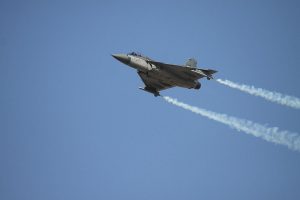Steeped in history, the city of Kolkata (formerly Calcutta) has a lot to offer anyone interested in it. The subjects are enormous and all worth exploring, from its architecture, food and cuisine, freedom movement, arts, sports, cemeteries, etc. The list is long.
Heritage walks, exploring the various aspects of the city, have become more specialised and specific. The tour operators are now delving deeper and exploring many finer nuances that had not been explored earlier.
BAUL Foundation does very specific walks based on the needs of their clients. It can be digging into the legacy of Nawab Wajid Ali Shah, travelling to his palace, which is now the residence of the South Eastern Railway general manager, or visiting institutions like the RBI or SBI.
Samrat Chowdhury, chief mentor and group co-founder, said, “BAUL (bespoke art and unique legacies) Foundation deals with the rediscovery of the heritage roots of India through several routes. I take many routes, such as cuisine, textiles, industry, and architecture (pre- and post-colonial). Presently, I am doing purano Kolkatar olite-golite (old Calcutta’s lanes and bylanes) with the NRIs.”
Samrat feels that now there is a huge disconnect with the semi-adult generation (15–30 age group). He added, “The challenge is to reach heritage to the next generation. This is a movement for me. Any running or dilapidated heritage has to be made relevant to the current society through adaptive reuse.”
Vibha Mitra of Own the Past says they are focused on architecture but also on other aspects. They are doing walks on different aspects.
Apart from walks, Own the Past is also into immersive heritage.
“We have a heritage book club, where we did one of Gauhar Jaan and next would be on Siraj-ud-Daulah. The walk would be around the GPO with the battle of Plassey as per Siraj-ud-Daulah’s perspective. For this, we asked the audience to read up on Siraj first. We also did a walk on the evolution of architectural designs. We also have a gurukul club for children, where we had a programme on puja idol making at Rani Rashmoni’s house. Letting the younger lot interested in our legacy is the way forward for us. Our Nakhoda Masjid walk was about the food heritage of the nawabs.”
For Navpreet Arora, walks are an organic development out of her love for the city. She started doing broad topics for her walks (colonial and native parts of the city). “I had to make my walks unique. The city is the same; you have to go to a micro level to reinvent. For the food walks, we show how the food joints acted as a façade for the freedom fighters to meet. We do the nationalist trail. We also do the trading houses walk in Dalhousie Square,” said Navpreet.
For Calcutta Walks, the agenda has been to enlighten people about the city and its various nuances, which are not much explored.
Iftekhar Ahsan of Calcutta Walks said, “I have been honing the tours for the last 18 years to make them informative, entertaining and palatable by simplifying the consumption of history. Earlier, we used to get foreigners, but now it is more Kolkatans and Indians. It is time to go deeper, but by doing that, the target market shrinks. There has to be a minimum viable number for the company to survive. If you don’t have that, then you have to make the harsh call of removing it from your list.












